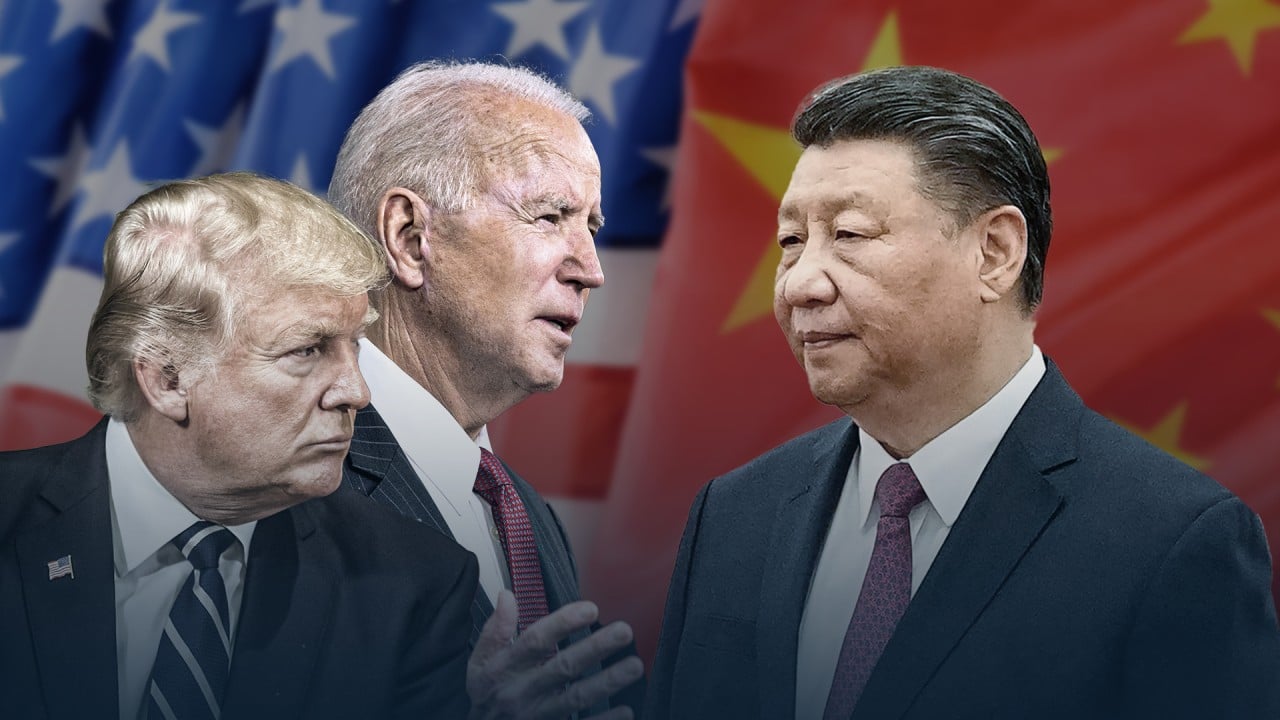EU to unveil technologies targeted in China ‘de-risking’ agenda, but plan remains divisive within bloc
The European Commission will reveal which critical technologies it is targeting in “de-risking” ties with China on Tuesday as it looks to refine the parameters of its economic security strategy.
Brussels’ powerful trade department is also expected to explain how it will assess the economic dependencies of the European Union’s 27 member states on China amid political pressure to advance the plan before Europe sinks into full-blown election season, EU sources said.
The ultimate goal is to reduce the union’s reliance on China for key imports, but also to stem the flow of key technologies to Beijing over fears they could be used to bolster the People’s Liberation Army. These are expected to include some areas of microelectronics, quantum computing, robotics, artificial intelligence and biotech.
But the plan is unlikely to unfold without drama as de-risking remains hugely divisive across Europe. It has pitted different business groups against each other, sown discord between EU institutions, and caused ructions between and within member state governments.
Disquiet in EU ranks as ‘de-risking’ strategy for China pushes ahead
Disquiet in EU ranks as ‘de-risking’ strategy for China pushes ahead
On Thursday, German Chancellor Olaf Scholz set out his opposition to an EU investigation into alleged subsidies for China’s electric vehicle sector, which is being conducted following informal requests from the French government and industry.
Asked at a Berlin forum about the risk of a trade war emanating from the probe, Scholz replied: “Obviously this will not happen.”
The Social Democrat then launched into a diatribe against protectionism that led some to liken him to his predecessor Angela Merkel, who sat on the political right.
“The economic model which I favour is to have a global competition. I’m very much in favour of globalisation,” Scholz said.
Other German government departments, notably the economic and foreign ministries, have been more supportive of the probe and the de-risking agenda in general.
“We are realising that there are big asymmetries … and for our security-mindedness, our future supply security or our security when it comes to critical infrastructures, we need to assess that. And that is how de-risking is actually a rational concept, it’s something that governments should do,” said Petra Sigmund, the German Foreign Office’s Asia chief, at an event this week.
The investigation is separate from the economic security programme but is emblematic of a more combative mood towards Beijing in the union’s secretariat.
Chinese envoy takes aim at Europe’s ‘de-risking’, national security fears
Chinese envoy takes aim at Europe’s ‘de-risking’, national security fears
Also on Tuesday, the European Parliament is expected to formally approve the anti-coercion instrument, a powerful trade weapon aimed at giving Brussels recourse against China’s perceived economic bullying.
Trade officials are thought to be scrutinising China’s medical technology sector too, which is largely closed to EU firms.
“Further work will be needed to improve public procurement access for European medical devices,” the bloc’s trade chief Valdis Dombrovskis said in China this week.
Speaking in Brussels on Thursday, the EU’s deputy head of trade relations with China, Marco Chirullo, downplayed the divisions among EU members.
“It’s always a fine balance to make sure that member states agree on the way forward, it’s the Brussels game in a way,” Chirullo said, adding that members were also heavily divided on items such as a screening mechanism for Chinese investments into the EU, but eventually converged.
“So step by step I think that discussion will continue and will eventually lead to the synthesis that is expected from member states. And it’s a difficult discussion, but we had equally difficult discussions in the past and then eventually your way forward is found.”
During a stream of visits to China in recent weeks, senior EU officials have attempted to explain to Chinese counterparts that the de-risking approach will be narrow in nature and only affect a small portion of bilateral trade.
“De-risking is not decoupling. And the EU has no intention of decoupling from China,” Dombrovskis said when addressing the Bund Summit in Shanghai last Saturday.
However, the Latvian official warned that the EU “cannot allow itself to be unprotected when our openness is abused and when our national security is at risk”.

14:45
An unwinnable conflict? The US-China trade war, 5 years on
An unwinnable conflict? The US-China trade war, 5 years on
Europe’s solar, wind and hi-tech battery industries have also pleaded for help to compete with cheaper Chinese competition in recent weeks. Business groups have called for clarity on just how far Brussels plans to go.
“For businesses, it’s really critical that we define well what are the dependencies and what are risks so that we create the predictability and legal certainty that companies need to shape their supply chains,” said Elena Suarez, a senior adviser on China at the lobby group BusinessEurope.
Suarez added that European businesses were already “decoupling” their China supply chains from their global operations, which “comes at a cost”.
“At a moment when European companies are already assuming the … higher costs of the green transition and decarbonisation, and now we also need to assume the costs of security et cetera, the question is whether the consumer will pay or not.”



